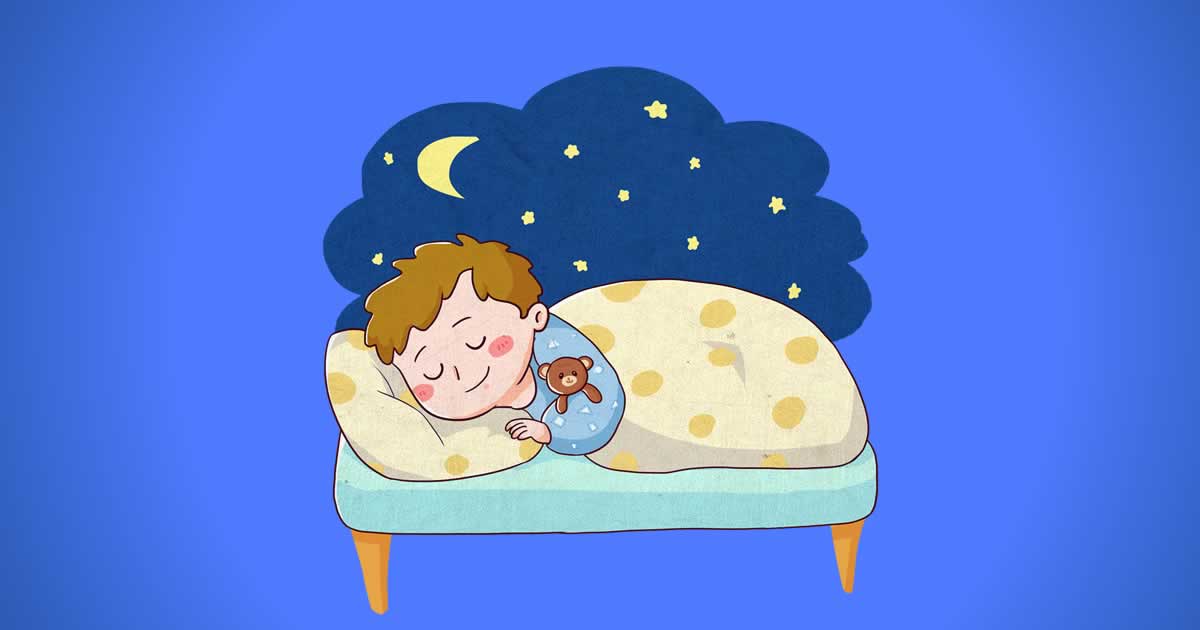Everyone knows that a person sleeps for a whole third of his life. But what processes accompany this state? And what are the benefits of sleep?
Healthy sleep is an integral and significant part of our life. A good night’s sleep relaxes your body and mind. However, it’s not just about relaxation. During deep sleep, the body performs many tasks without which its functioning is simply unthinkable. In this article, we are going to list some of the vital sleep benefits that happen to your body.
Sleep Cycles
The first cycle is the stage of Non-REM (Rapid Eye Movement) sleep. We stop seeing, then hearing and feeling. The second stage occurs when our brain is still aware of everything that is happening around us. Then, after passing the third and fourth stages, we enter the phase of REM sleep, when we begin to dream, but the full cycle occurs about five times and lasts somewhere from 90 to 120 minutes in total.
While the final sleep cycle, you are not doing anything; your body does many things. In this stage, your body doesn’t move much because the frontal cortex is more or less shut down. But, your body repairs muscle and tissue, stimulates growth, and supports immune function during this stage.
Benefits of a good night’s sleep:
1. Better memory management
One of the important benefits of having a better sleep is the retention of memory. When we sleep, the brain works intensely to reinforce our memory. To consolidate learning, it activates the same regions to acquire information or to remember what we needed while we were awake — the hippocampus, the entorhinal cortex and the neocortex.
During REM sleep, the brain becomes more active, sorting through memories and processing the day’s information. In humans, even the eyeballs move during this phase of sleep. It is at this time that you may have dreams with a solution to the problem that you thought about during the day.
When a person sleeps, all new information received passes from short-term memory to long-term memory, so there is a theory that studying before bed is effective. But you need to get enough sleep and not cram all night so that the brain has time to complete this whole process.
Also, if you can’t solve a problem, go to sleep, and everything will be solved! It turns out that during sleep, our brain analyzes all possible problems, so in the morning, it is easier to solve problems.
2. Reboots the immune system
Sleep is a vital part of maintaining immunity. During sleep, the immune system fights infections by releasing cytokines, special proteins. Studies have shown that people who consistently sleep poorly are more prone to illness and infection. Getting enough sleep is important for both recovery from illness and prevention of illness.
3. Relaxes of the nervous system
The changes that occur in the brain during sleep actually affect the entire body. This is because when you are asleep, your sympathetic nervous system relaxes. As a result, When you sleep, the sympathetic nervous system relaxes. As a result, your blood pressure drops, breathing slows down, and body temperature drops. It reaches its lowest point a few hours before waking up.
4. Renews skin
Sleep is also a time for that skin detoxification and repair. Many skin cells have circadian rhythms. Lack of sleep can lead to skin conditions such as psoriasis, acne, and rosacea. Even one night without sleep reduces the level of skin elasticity. Research also shows that poor sleep exacerbates skin ageing.

5. Produce varies hormones
When you sleep, the pineal gland releases melatonin, an important hormone for controlling sleep and jet lag. At the same time, the level of cortisol — the main stress hormone secreted by the adrenal glands — decreases. The body also produces the antidiuretic hormone, which suppresses the urge to go to the bathroom at night.
During sleep, human growth hormone is secreted and acts, and the growth of muscles and bones is stimulated. So sleep is essential for the correct development and growth of the child.
6. We grow
Without a doubt, this is one of the most curious things that happens while you sleep, and that is that during the night, we grow in height. Obviously, in the morning, we return to our original size, bad news for those who crave a few extra centimetres.
The reason is that during the night, the spinal column is hydrated, so the space between vertebrae becomes bigger, stretching our body and making it a little longer until, in the morning, the discs contract and we lose what we had gained.
7. We also lose weight
Did you know that while you sleep, you burn energy? Taking into account that you do not eat anything, the total result at the end of the night is that you lose weight.
While we sleep, the body continues to carry out its basic functions, such as breathing, processing food, pumping blood, eliminating waste, etc. These functions consume power. This is known as basal metabolism, that is, the minimum value of energy necessary for the cell to survive. Therefore, even if we do not move, our body continues to consume energy and that translates into a loss of calories. It depends on various factors, including our body mass or our sex.
Experts noted that approximately 50 kcal per hour is burned in the human body during sleep. Eight hours of sleep approximately burn 400 kcal or 150 g of bread.
Tips to have a truly restful sleep:
- Respect your dream. Keep a regular sleep schedule and aim to get up at the same time every day.
- At night, only go to sleep when you feel sleepy and are ready to do so.
- When you can’t sleep, don’t stay in bed, get up. This will help regularize sleep.
- If you have trouble sleeping at night, don’t nap. That will promote your sleep the next night.
- Keep your bedroom ventilated and at the right temperature, dark and quiet at night.
- Avoid intense exercise in the hours before bed. As the body temperature increases, it is difficult to fall asleep.
- Avoid alcohol consumption to induce sleep. Even if it could help you sleep, your sleep will be of poor quality, and you will wake up many times at night.
- Smoking disturbs sleep. Avoid doing it, especially in the hours before bed.
- Avoid large meals and drinks that contain caffeine. Warm milk might help you sleep.
- If sleep disorders persist, consult your doctor to identify the origin of your insomnia and establish appropriate treatment.
It’s amazing how many things happen in our body at night — and us without realizing it! In short, we can say sleep is particularly relevant to restoring the best conditions for our health on a daily basis.







Leave a Comment